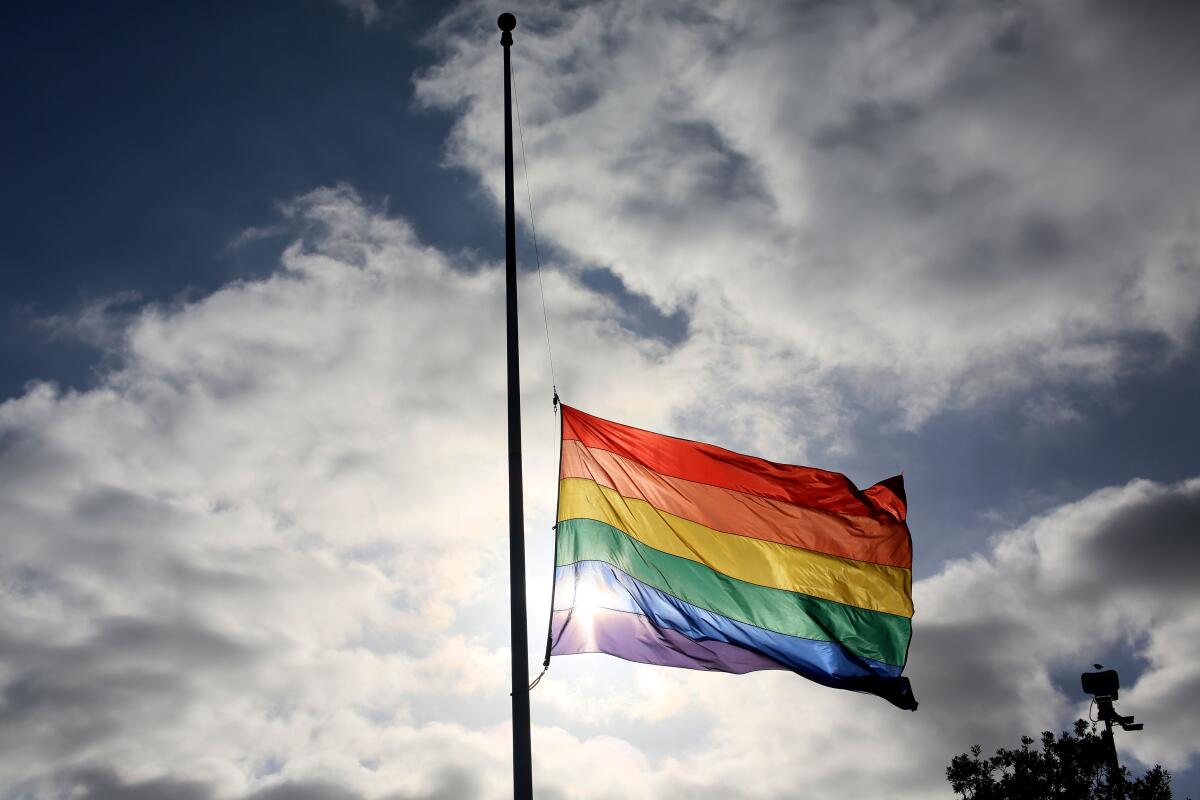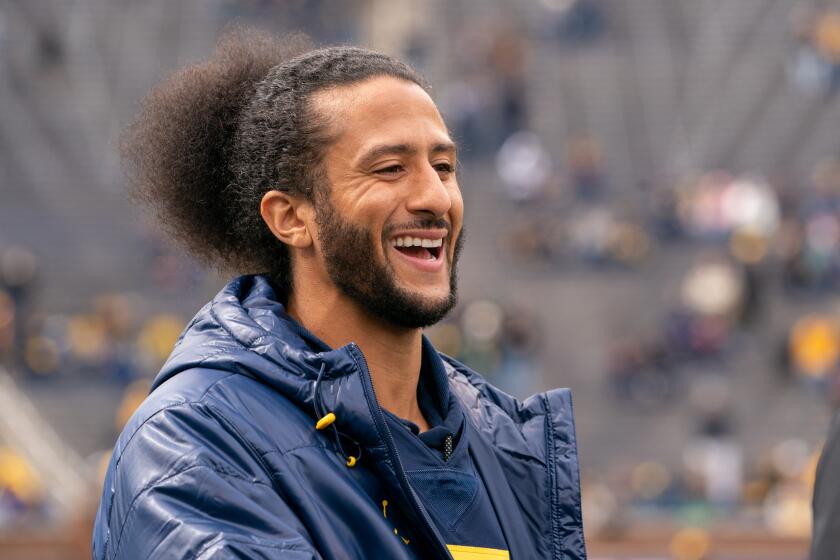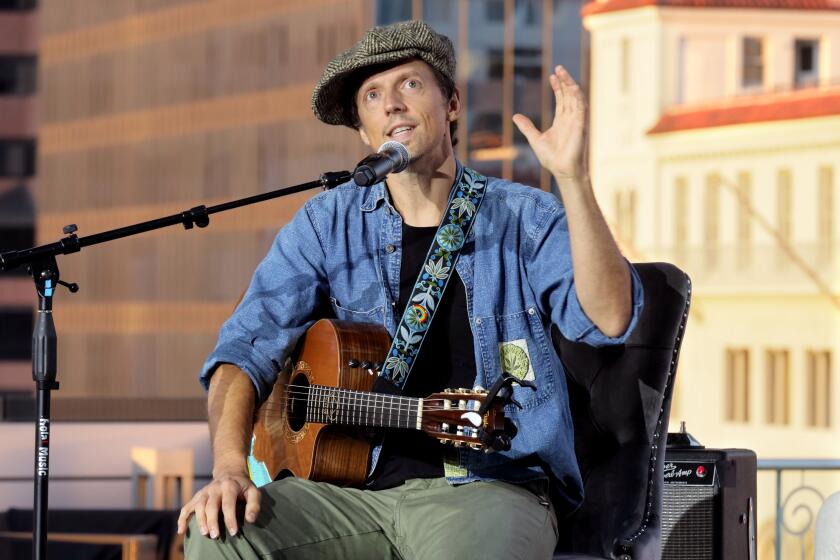Column: America’s tragic war on LGBTQ+ people extends its collateral damage

- Share via
This week a small town in east Alabama is saying goodbye to someone they shouldn’t have lost.
By all accounts, F.L. “Bubba” Copeland Jr. was loved by thousands in Smiths Station, a community of about 5,400. He was mayor. He was a small business owner. He was a pastor. And yet when he was dealing with fallout from his community believing he was queer, he decided to kill himself.
Opinion Columnist
LZ Granderson
LZ Granderson writes about culture, politics, sports and navigating life in America.
A conservative publication had posted pictures of Copeland wearing a wig and women’s clothing. He addressed the issue from the pulpit on Nov. 1, saying the article did not reflect who he was and that “sometimes people stumble” in their faith walk.
On Nov. 3, after days of public ridicule, police said, Copeland shot himself in front of them. Former Alabama Sen. Doug Jones criticized the publication for outing Copeland, posting on social media “we live in a mean and bitter world where the self-righteous tend to throw the largest stones.”
Why is he shunned? The country has changed since he protested police brutality in 2016. And the Rams could really use his help.
I had not heard of Copeland prior to his death, but I do empathize with much of his story.
I was closeted while working in the ministry for years. At one point in life, I too concluded that suicide was my only choice. I was blessed to have survived my attempt. For far too many, that is not the case. This is why organizations such as the Trevor Project and the Ali Forney Center are needed — to provide refuge and help for those struggling with sexual orientation and gender identity. It’s gut-wrenching to know someone as cared for in his community as Copeland was still did not believe that same community would love him if they believed he was queer.
He has devoted his career to demeaning, endangering and imprisoning LGBTQ+ people. That’s the résumé House Republicans were looking for.
For his final sermon, Copeland turned to the Book of Psalms and its many passages about life’s challenges and God’s protection.
“Even though I walk through the valley of the shadow of death, I fear no evil,” he said at his church’s Wednesday evening service last week. “For you are with me; your rod and your staff, they comfort me.
“When you’re down, scared, worried, remember who has you. Whose rod, whose staff guides you, who takes care of you. The only opinion that matters is what’s God’s opinion of you.”
And then two days later he killed himself.
A theme of self-discovery has special meaning for LGBTQ+ people, who often grow up hiding their true selves.
He was 49. His funeral is set for Thursday. His death is a reminder that you never know what people are privately dealing with, especially in places of worship, where heartache comes to find healing.
We can’t ask Bubba Copeland what was going through his mind. But we do know what’s been going on in this nation: a disturbing wave of hatred and violence toward LGBTQ+ people.
In July in New York, a gay man was killed for dancing. Outside of Los Angeles, a straight woman was killed the next month for hanging a rainbow flag. This week, a man in Dallas was sentenced to 48 years in prison for murdering a trans woman in 2019 just weeks after she had been beaten by a group of other men. And now the mayor of a small town in the Bible Belt takes his own life. Senseless homophobic and transphobic violence across the country, hurting Americans from very different walks of life, sometimes people who aren’t even LGBTQ+.
Jars of Clay, one of my favorite Christian bands, has a song called “Shelter,” which is rooted in the communal spirit of Psalms. The lyrics are a reminder to be kind: “God has given us each other, and we will never walk alone.” When asked about it, lead singer Dan Haseltine said: “There is no power in love, no gravity in forgiveness, no consuming light in darkness, no incomprehensibility of joy if we forget we belong to each other.”
A recent political poll found 76% of Americans believe the country is headed in the wrong direction. I happen to be one of them. We are headed in the wrong direction: apart from one another.
Whether through legislation or rhetoric, we just keep finding ways to push each other away. To “other” one another. To hurt one another.
This is particularly harmful when it comes to faith communities and places of worship, where we are supposed to gather and find fellowship. If faith leaders are wondering why America’s church attendance is at a historic low, I would start there.
A small town in east Alabama is saying goodbye to someone it shouldn’t have lost. The hope is that some other person struggling with similar issues will find the reassurance and love to know they are not walking alone. That instead of ridicule and shame, there is shelter.
More to Read
A cure for the common opinion
Get thought-provoking perspectives with our weekly newsletter.
You may occasionally receive promotional content from the Los Angeles Times.













